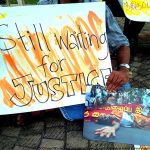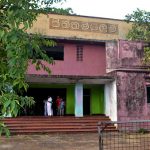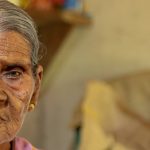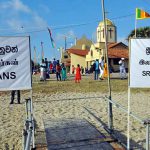Why are Sri Lankan women not coming home from working abroad?
Thousands of women go to Saudi Arabia and parts of Asia to work as housemaids. Some of them never return. In 2017, 32 women were sent home in coffins.
“My daughter does not need to send any money, I just want hear her voice,” says Ariyamalar Nicholas Fernando of her daughter who went to work in Saudi Arabia from Batticaloa eight years ago. “I would be relieved.”
“Rita is 34 years old, she is my second daughter. She lost her father when she was only a year old. I had to raise both of these children up from my meager income from doing petty jobs. We did not have the means to build a house. My daughter Rita often told me that she wanted to go abroad and come back and build a house. I did not like that idea but she was adamant.
On January 7, 2010, Rita travelled to Saudi Arabia through a foreign employment agency in Eravur. She was sending 40,000 rupees per month. “We told her to come back after four years. She told us that if she worked there a little more, she could complete our partly-built house and then come back to the country and get married.
I was very sad. We invited her to come back to the country in 2015. She told me that she would come after the fasting period was over. Even after the fasting period she did not come. In the meantime, her Saudi sponsor told us that she would be sent back after the Hajj festival.
She did not return even after the Hajj. Our last contact with her was in April 2015. After that her phone number had been disconnected.
When we asked the employment agency about it they said that she was sent on a two-year contract, and now that the contract period is over, they can’t do anything about it.
We went to Sri Lanka Foreign Employment Bureau in August 2016 and filed a complaint. They said they would contact the agency in Saudi Arabia and take action. After one month, Foreign Employment Bureau officials told us that they had gone to her address but that there was no one in the house and it had been closed.
Now three years have passed since my daughter and I have been cut off. We do not need money from her labour. It’s enough for me to hear her voice once.”
Desperate measures to earn money
The CIA World Factbook cited 600,000 Sri Lankans working in Saudi Arabia in 2013. Most of those who go abroad for employment are women. They travel mainly due to debt burden, family problems, the death or abandonment of their husbands, or an inability get married due to a lack of finances.
After the war, many families lost their main bread-winners or others were maimed or disabled in the war. Thousands of Sri Lankan women from the Eastern Province went to the Middle East as well as Singapore and Malaysia to work as housemaids.
They went abroad fulfilling every legal requirement. Some have gone missing. Some of those employed abroad are tortured. Severe labour laws and human rights violations are common.
Some families have no contact to their family abroad and are unaware of their whereabouts. From Batticaloa District alone, at least 500 people have gone missing, still with no contact as of 2017, according to official reports. In 2017 35 came home as corpses, 32 of whom were women.
No sign after five years
Mohammed Haniffa Firthowsiya, now 33, from Eravur, went to Saudi Arabia to work as a housemaid through an employment agency in Colombo in November 2006.
/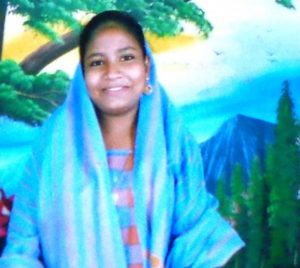
“My daughter still has not come back. My relationship with her has been cut off for the last five years,” says her mother Asiya Umma, aged 73. Firthowsiya has not sent money for the last six years.
“We lodged a complaint at the Sri Lanka Foreign Employment Bureau in Colombo on January 16, 2013. We were told that they would take immediate action but even after five years, they seem to have not taken any action regarding my daughter.
We have filed complaints with Eravur Divisional Secretariat, Eravur Foreign Employment Division, the Reconciliation Department of the Foreign Employment Bureau of Sri Lanka, Batticaloa Human Rights Commission and with MP Alizahir Mowlana. But until now we have received no positive answers from any of them.”
There are 44 Overseas Employment Development Officials in 14 Divisional Secretariats in Batticaloa District. They have records of all citizens who have gone abroad for employment.
In addition, District Human Rights Commission and the Foreign Employment Bureau records show connections with 460 of those who went to the Middle East for employment remain cut off between 2013 to 2017. (85 people in 2013, 120 people in 2014, 135 people in 2015, 75 people in 2016 and 45 people in 2017).
Details of 350 people have been sent to the Ministry of Foreign Employment in 2017. Out of these, about 250 people have been contacted. The rest remain missing.

